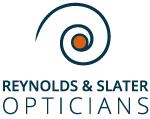In today’s digital age, we’re constantly surrounded by screens, from our smartphones to laptops and televisions. While this connectivity has undoubtedly improved our lives, it’s also brought about a new concern: the impact of blue light on our eyes.
In this guide, we’ll dive into the basics of blue light and its effect on eye health, explore the benefits of blue light glasses and provide tips on choosing the right pair or looking for alternative eye care solutions.
Understanding Blue Light
Blue light is a high-energy, short-wavelength light that is emitted by the sun, as well as digital screens and fluorescent lights. While exposure to natural blue light during the day is beneficial for regulating our circadian rhythm, excessive and prolonged exposure to artificial sources, especially at night, can lead to eye strain, fatigue, and disrupted sleep patterns.
What Does Blue Light Do to Your Eyes?
Research suggests that prolonged exposure to blue light may contribute to digital eye strain, also known as computer vision syndrome. This condition encompasses a range of discomforting symptoms such as dry eyes, blurry vision, headaches, and difficulty focusing. Moreover, studies have indicated that over time, extended exposure to blue light may contribute to more serious eye conditions.
The Benefits of Using Glasses to Protect Your Eyes From Blue Light
Here are some key benefits of using blue light glasses:
Reduced eye strain: blue light glasses can help alleviate the discomfort associated with prolonged screen time, allowing you to work or browse the internet without discomfort.
Improved sleep patterns: wearing blue light glasses in the evening can help minimise the disruption of your circadian rhythm caused by late-night screen exposure, leading to an overall better sleep quality.
Preservation of long-term eye health: by reducing exposure to potentially harmful blue light, these glasses may contribute to the prevention of more serious eye conditions that could develop over time.
Alternatives to Blue Light Glasses
Blue light glasses are specially designed to filter out a significant portion of blue light, reducing the strain on your eyes – but they’re not the only way to keep your eyes protected. If you’re looking to alleviate discomfort, then there are a few other options that may be suitable for you:
Varifocals: as the modern alternative to bifocal lenses, these are normally advised for people over the age of 40. Benefits of varifocal lenses include synchronised vision, helping the eyes work as a pair, and a bespoke fitting to you and the way you use your glasses.
Smartlife Digital Lenses: Our range of ZEISS Digital Lenses offer the perfect remedy for blue light by enabling fast, comfortable focusing thanks to a specially optimised ‘near zone.’ These lenses are ideal for prolonged digital device users.
To find out whether blue light glasses or an alternative option is more suitable for you, speak to our team of optical professionals today or read more about our different spectacle solutions, here.
Choosing the Right Glasses
When it comes to selecting the perfect pair of glasses to protect your eyes from blue light impacts, consider the following tips:
Lens quality: look for lenses with a high-quality blue light coating that effectively filters out a significant portion of blue light without altering the colour of what you see.
Fit and style: opt for a frame style that not only complements your face shape but also provides a comfortable fit for extended wear. Get help choosing the right glasses for your face shape, here.
Durability: invest in glasses with sturdy frames and scratch-resistant lenses to ensure they withstand daily use.
Using the correct prescription: if you have a prescription, consult with the team at Reynolds Opticians to discuss your options for incorporating blue light filtering into your prescription glasses.
Practical Tips for Using Blue Light Glasses
To get the most out of your blue light glasses, keep these tips in mind:
Wear them consistently: put on your blue light glasses whenever you’re using digital devices, especially in the evening.
Take regular breaks: remember to take short breaks from screen time to rest your eyes and reduce overall strain.
Adjust your screen settings: dim the brightness and adjust the colour temperature of your screens to further minimise blue light exposure.
Follow other eye-healthy habits: complement the use of blue light glasses with practices like the 20-20-20 rule (every 20 minutes, look at something 20 feet away for at least 20 seconds) to promote good overall eye health. Read more about eye health in our eye care tips blog, here.
Speak to the Reynolds Team to Find Your Blue Light Glasses Solution Today
Ready to give your eyes the protection they need? Investing in a pair of glasses is a small step that can lead to significant improvements in your eye comfort and health. By understanding the impact of blue light and taking proactive measures to protect your eyes, you’re making a valuable investment in your long-term well-being. Speak to our team today to find out more or book your appointment for a consultation on blue light glasses or alternative solutions.







